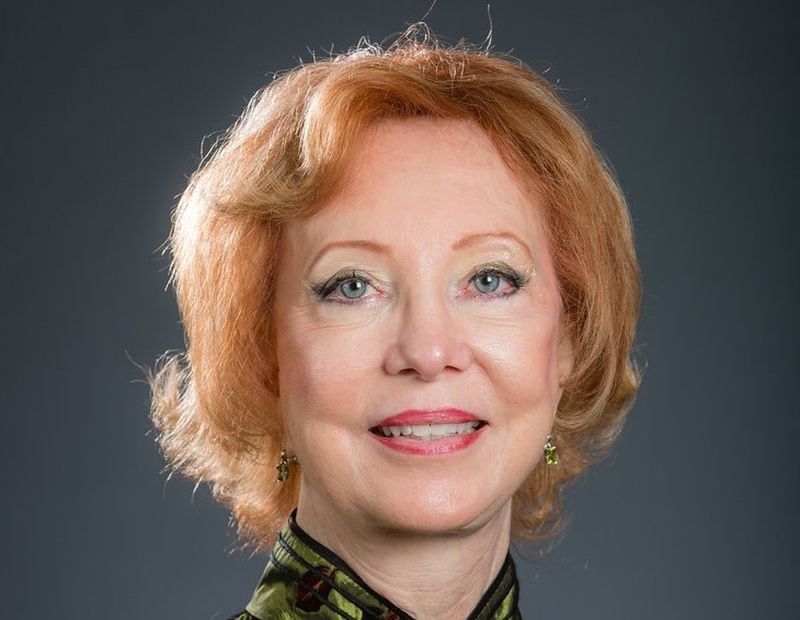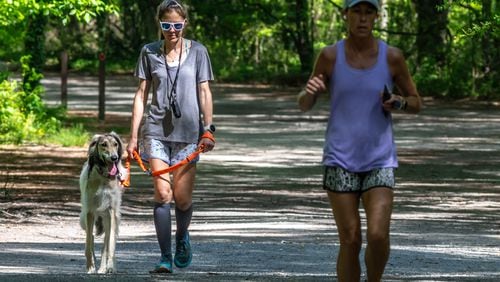COVID-19 has exacerbated an already critical problem: Opioid-related deaths in this country are skyrocketing. According to the CDC’s National Center for Health Statistics, more than 100,000 drug overdose deaths took place in the United States between March 2020 and March 2021, an increase of nearly 30 percent from the previous 12-month period.
And behind each of those numbers is a human story.
Almost all of us know someone who has battled opioid dependence — whether a family member, friend, colleague or neighbor.
But knowing about a problem isn’t the same as doing something about it. Most of us don’t know how to respond to the opioid epidemic. It feels too widespread, too complicated.
Credit: contributed
Credit: contributed
Enter Dr. Sarah Febres Cordero, whose story ought to inspire us all to get off the couch and do something.
Sarah spent 20 years working at a restaurant in Atlanta’s Little Five Points neighborhood. In that role, she witnessed neighbors, coworkers, customers, and friends suffering from drug dependencies. She saw more heroin overdoses than she wants to remember. As an untrained first responder, she once helped save the life of someone at the restaurant who had overdosed. That event, jarring as it was, made her want to do more.
“I wasn’t sure if I could become a nurse,” she says. “I was 36 years old. It was scary. But once I got into school and started, the way opened up.”
In Georgia, more than 1,300 (or 67 percent) of drug overdose deaths in 2020 were related to opioids. Over the last decade, the total number of opioid-related deaths in Georgia has increased by 207 percent. Sarah wanted to be part of the solution.
She entered graduate school and earned a nursing degree from Emory’s Nell Hodgson Woodruff School of Nursing. She went on to earn a Ph.D. in nursing. For her dissertation, she designed a study that would include service industry workers in Little Five Points. She wanted to capture their experiences with the opioid epidemic and help raise awareness of ways to foster positive change.
“I thought, if I had lost so many from overdose, others must have too,” she says. “And if I had rescued someone from an overdose in Little Five Points while at work, there must be others who had done the same.”
Today, as a postdoctoral fellow at Emory and a wound care nurse at the Atlanta Harm Reduction Coalition, Sarah is saving lives back in her old stomping ground. She’s exactly the kind of person we need on the front lines of America’s opioid crisis. We need individuals who are engaged in the humanity of the problem, doing what they can, where they can, bringing the latest advances in science, public health and medicine to their own neighborhoods.
Sarah’s postdoctoral project will be featured at Science Gallery, and I encourage everyone to come out and look at it. Her dissertation is being translated into a graphic novel sharing the stories of service workers in Little Five Points. Local artist Joseph Karg is illustrating these stories, helping them come alive for readers.
Their collaboration is just one artwork featured in the inaugural Science Gallery Atlanta exhibition, organized and hosted by Emory. Titled “Hooked: When Want Becomes Need,” this interactive exhibition is all about addiction and recovery. On view at Atlanta’s Pullman Yards through this summer, “Hooked” examines a range of dependencies that capture the human mind, from opioid use to gaming, social media and online shopping addictions. It brings science and art into conversation, inviting visitors to challenge stigmas and explore what recovery might look like for their own communities.
If universities don’t encourage community participation in the big questions facing health, medicine and our lives today, then public distrust of the scientific process will continue to eat away at our social and cultural fabric.
Major research universities like Emory should be actively recruiting and training the next generation of Sarah Febres Corderos — community scientists and health professionals who identify key problems at a local level and act in partnership with those whom they serve. Sarah made the critically important shift from noticing a problem to doing something about it. We need more leaders like her, especially as the coronavirus pandemic continues to disrupt the public health landscape. And cultivating those leaders means keeping an open mind about what experiences and insights they bring to the conversation.
So, the next time you’re enjoying a meal in Little Five Points or elsewhere, take a minute to remember that meaningful change can start at a single table — your own.
Deborah Watkins Bruner, R.N., Ph.D., is senior vice president for research at Emory University and chair and professor of nursing at Emory’s Nell Hodgson Woodruff School of Nursing.
About the Author







